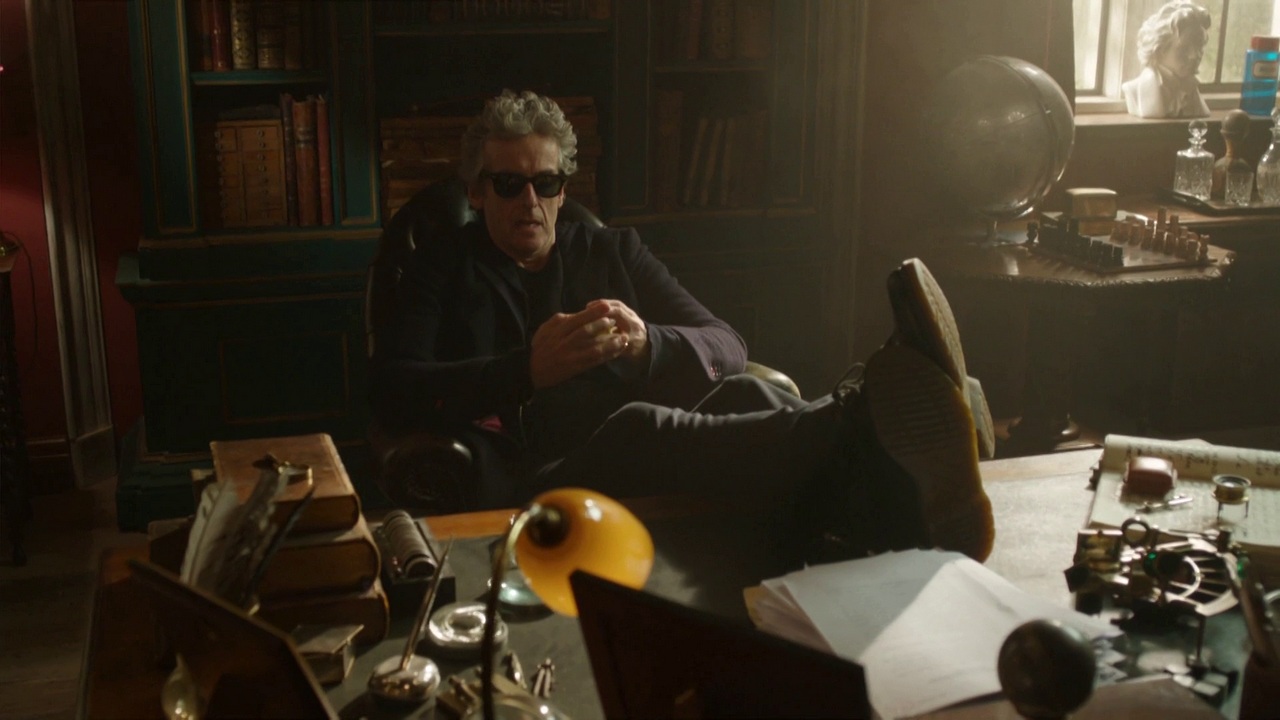 |
| "Let me guess, Bill - mysterious disappearances in a spooky labyrinth, right? Called it." |
They've all been like that this season, and next week's episode doesn't look like it's going to be a radical alteration to the pattern. Is that a bad thing, though? The five stories have been all very good if slightly unengaging with the last couple (which didn't get the mix of regulars/new characters right), but hardly the variety roller-coaster trip of a lifetime you'd expect. To put it harsh, the show hasn't slammed into full gear yet but that feels deliberate and careful rather than a break-neck lunge to the end sequence.
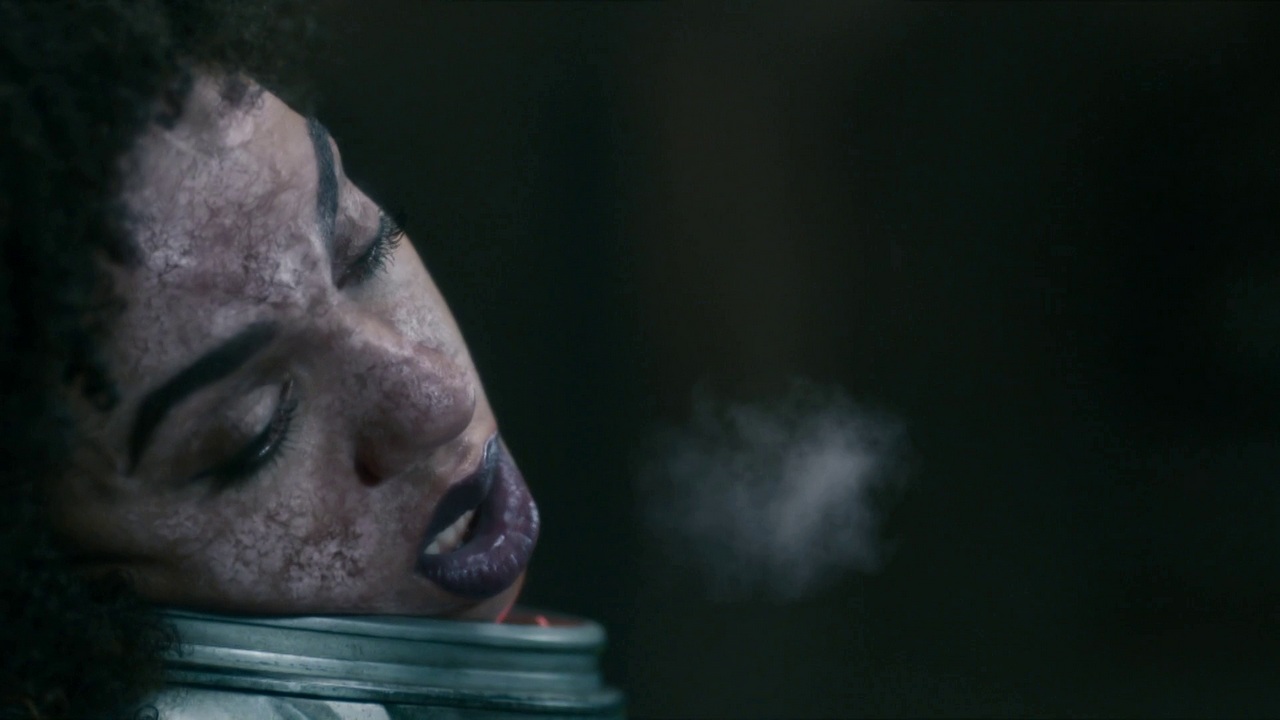 |
| "Yay! Long have we yearned for meaningless bloodshed! MORE DEATH!" - average GB poster |
Thankfully, no one is risking that this year. Bill has been described by writers as revolutionary, forcing them to challenge their very perspectives on DW cliches and go in unexpected routes - like Bill's understandable attempt to chuck the Doctor out of her share house from social embarrassment, or the Doctor confronting the fact that for all the fun of the frost fair that racial intolerance is going to ruin his day. This time we get her take on the "trust me" scene as the Doctor seemingly leaves her to die, wanting to do so but humanly realizing she's going to die whatever clever plan is used. Or as she finds herself being mistaken for racist by blue Richard O'Brien and also how awkward it is for anyone in that position to dig their way out.
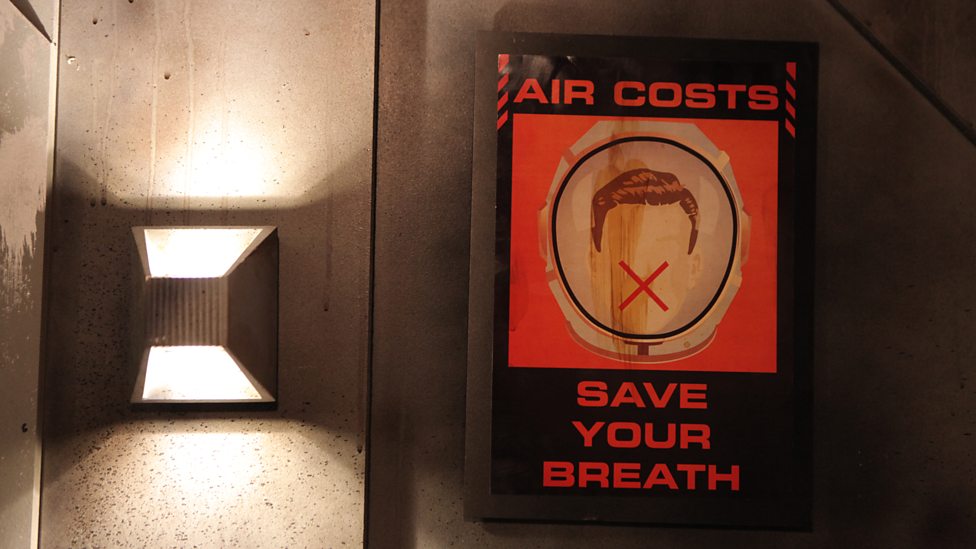 |
| "This calls for a very special blend of psychology... and extreme violence." |
She's not the focus this episode, though, as she is forced to share an adventure with Nardole once again which in turn gives Matt Lucas a chance to do more than giggle shrilly an impersonate a dwarf version of Eddie Hitler. The hints we get in this story that Nardole is actually a criminal murderer who transformed himself into a lovable camp bald midget to escape justice, as well as his brutal explosion of anger in the final scenes. For a character that seemed a kind of homage to K9, he's now a bit more like Turlough, if he stopped trying to charm the Doctor and just treated him like Tegan.
As for the Doctor, well, we all know Moffat has been the character's biggest critic since day one. The first thing he wrote for the show in an official capacity had a subtitle calling the Doctor "an utter bastard", considering him a charming sociopathic loose canon in the universe and his enemies like Daleks and Cybermen were simply persecuted because they didn't fall for his blarney. However, Moff's attempts to paint the Doctor in this darkest shade have not, let's be fair, worked quite well.
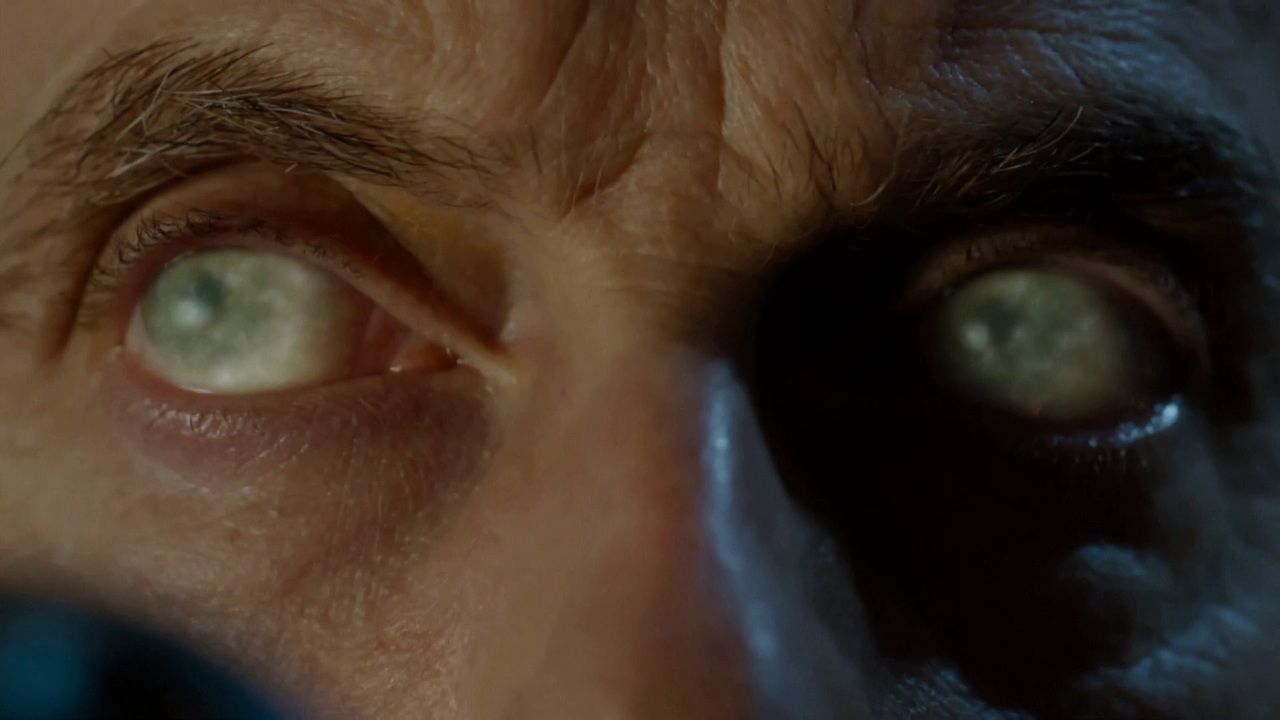 |
| The goggles... they did nothing... |
Partially this is down to Matt Smith's incredible charisma. He simply doesn't across like the manipulative, arrogant dick he was written as in Time of the Angels or A Good Man Goes To War. Yes, his life brings harsh consequences to those he cares about, but the whole Silence Arc ends up with "they started it" and the Doctor being morally blameless for it all (the endless bitter war simply is motivated by him protecting innocent bystanders on Trenzalore). Part of Capaldi's characterization was meant to strip away the Doctor's charm and let his actions speak for themselves, but the problem is... he came across like a dick, not someone who's flaws have finally been exposed. The idea of Kill the Moon was Clara would, like Amy in Cold Blood, be dumped to face the moral problems, and find it insulting. The trouble is, the Doctor just left Amy in a room saying "you sort it out, I have faith in you" whereas he fled in the TARDIS leaving Clara to choose whether to die by nuclear bomb or moon disintegration.
Moffat's attempts to show the Doctor as heroic despite a bigoted personality haven't come across at all. He's the only sympathetic character in a story that's sold as the one where the Doctor's the villain. He's likewise the most horrible character in the story where he has to prove himself with more principles than anyone else. You can't have an insufferable genius be wrong all the time, or else the genius bit is totally redundant. At last, with this series, it seems he's finally worked out how to get that across by having the Doctor constantly breaking his own promises and getting punished as a result. Oxygen sees him risk his life to save his friends, but acknowledges that he endangered them in the first place. Nardole's fury at the end makes it clear that the Doctor's noble sacrifice ultimately would be selfish, as he risks the whole universe just because he's getting bored hanging around in a university. We both agree with Nardole the Doctor was wrong, yet how can we disagree with the Doctor for answering a distress call and showing his best friend the universe?
In short, it's taken three years but for the first time we have sympathetic Doctor the audience can understand.
Oh well, better late than never.
 |
| Of course, true fans yearn for the good old days where the Doctor called ethnic minorities "pudding brains" and left them to die while he doodled on chalk boards. |
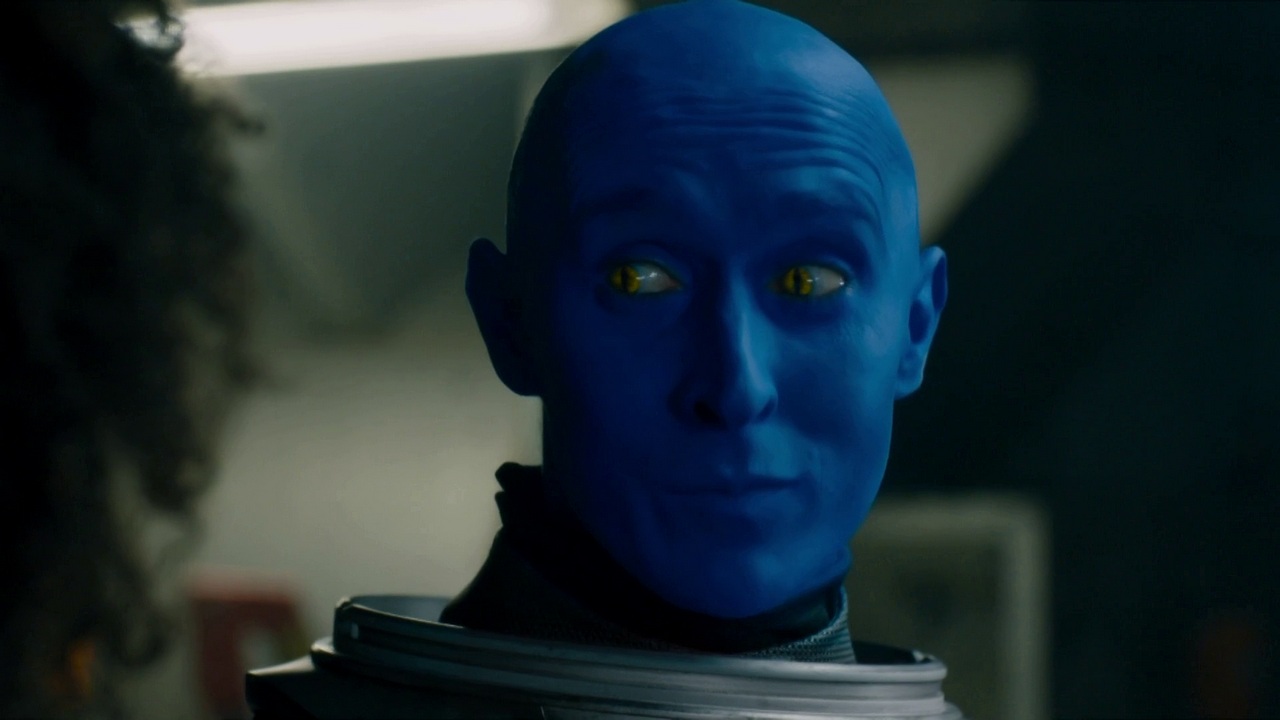 |
| "It's astounding... time is fleeting... madness takes its toll..." |
But is this all a subtle overarcing theme, rather like insatiable hunger in Season 22, or just the same old stuff being thrown at us again and again? In five episodes we've all been given the blunt message that past, present or future, life sucks and if you don't stand up to the bastards they will grind you down. Mind you, in five episodes we've had lots of toilet jokes from Bill who is more lavatorially-obsesssed than a box set of 80s Alternative Comedy skits.
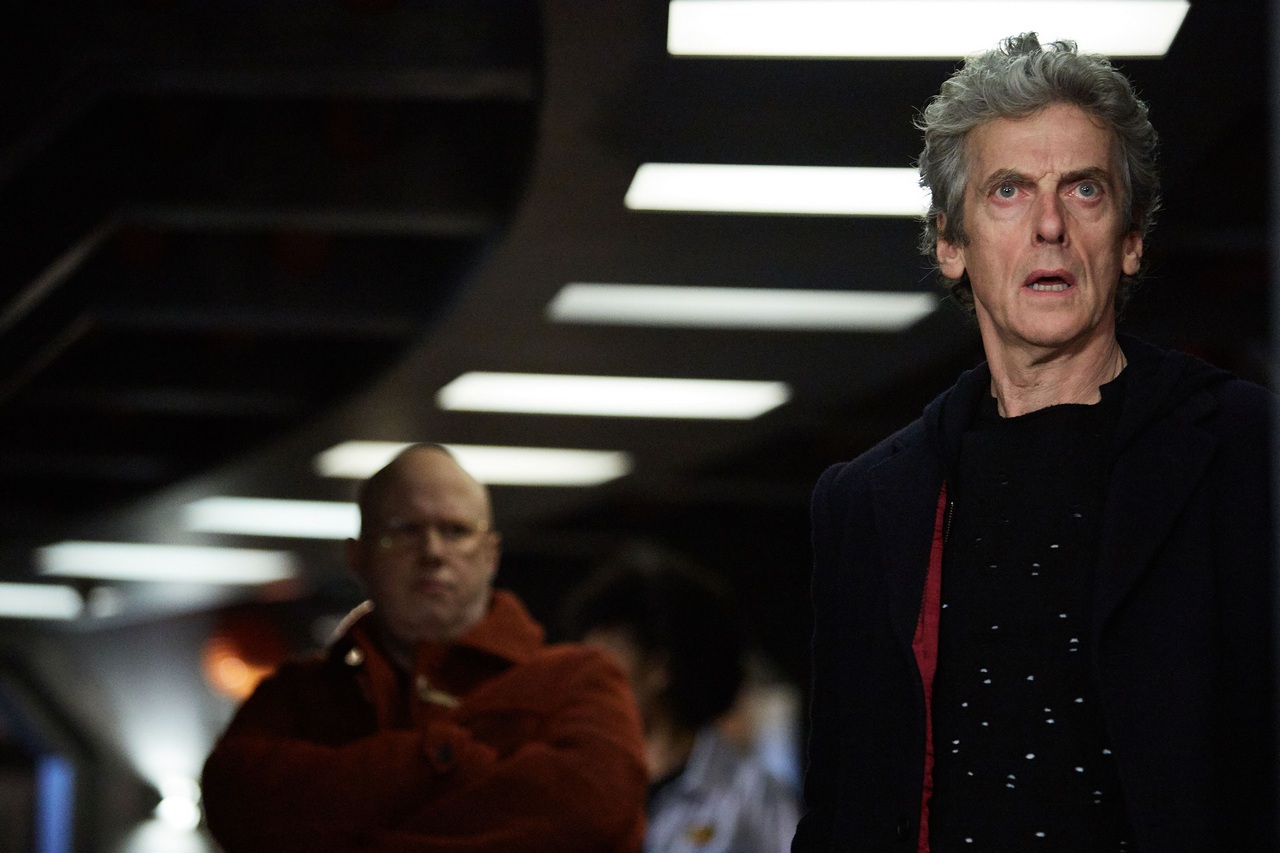 |
| The blind Doctor deeply regrets his improved sense of smell when Nardole breaks wind. |
Social relevance is, it must be said, not exactly something highly prioritized in Moffat's Who - the sociopolitical satire in Matt Smith's first year (where elections are shown to be pointless, the Daleks rebrand themselves in political colours, then there's a massive coalition that does nothing) was entirely incidental. The infamous Space Whale Aesop, as tv tropes call it, was the order of the day where the morals of the story are far from applicable to everyday life - don't use a space whale to pilot your ship, don't mine for acid with liquid clones, it's wrong to shoot dinosaurs through the head and rape Egyptian princesses. Oh, an wifi might be run by aliens stealing our souls. The most political episode of the Eleventh Doctor was Cold War, and that was about 1980s Nuclear Brinkmanship with most of the discussion of that edited out and replaced with "stop the missile, save the world" simplicity!
The Doctor's anti-war speech in Nightmare Scenario of the Zygons is rightly hailed as a brilliant bit of acting, but there are some who recoil from the blatant unsubtlety of it all. Perhaps that's because after years of being more concerned with basic morality and shades of grey, having Doctor Who tackle radicalized refugee immigration policy after an episode where an evil fire-breathing lion burns 18th Century highwayman is effectively whiplash. Especially as Leandro also did the "no home planet pity me no wait I'm evil" shtick, which is like an expose on steroid addiction following an episode of Roger Ramjet.
 |
| Beyond this door lies contemporary social commentary. Do you enter? Y/N |
After Smile tried to actually look at what future society might be like, where we all wear mood-detecting emjoibadges and have names like "Goodthing" and "Steadfast", Oxygen shows what future capitalism will be like when - like an old Lenny Henry joke - the big businesses are making you pay for the air you breath. You need to top up your credit rating, and distance is now measured in breaths. It's almost a twist that obvious solution to the deaths - that the corrupt corporate execs are behind it all - turns out to be true. When it's cheaper to kill someone than let them live, does a spreadsheet care?
That's an appalling pun based on one of Asimov's seminal works. Never mind, it's just the Fendahl talking.
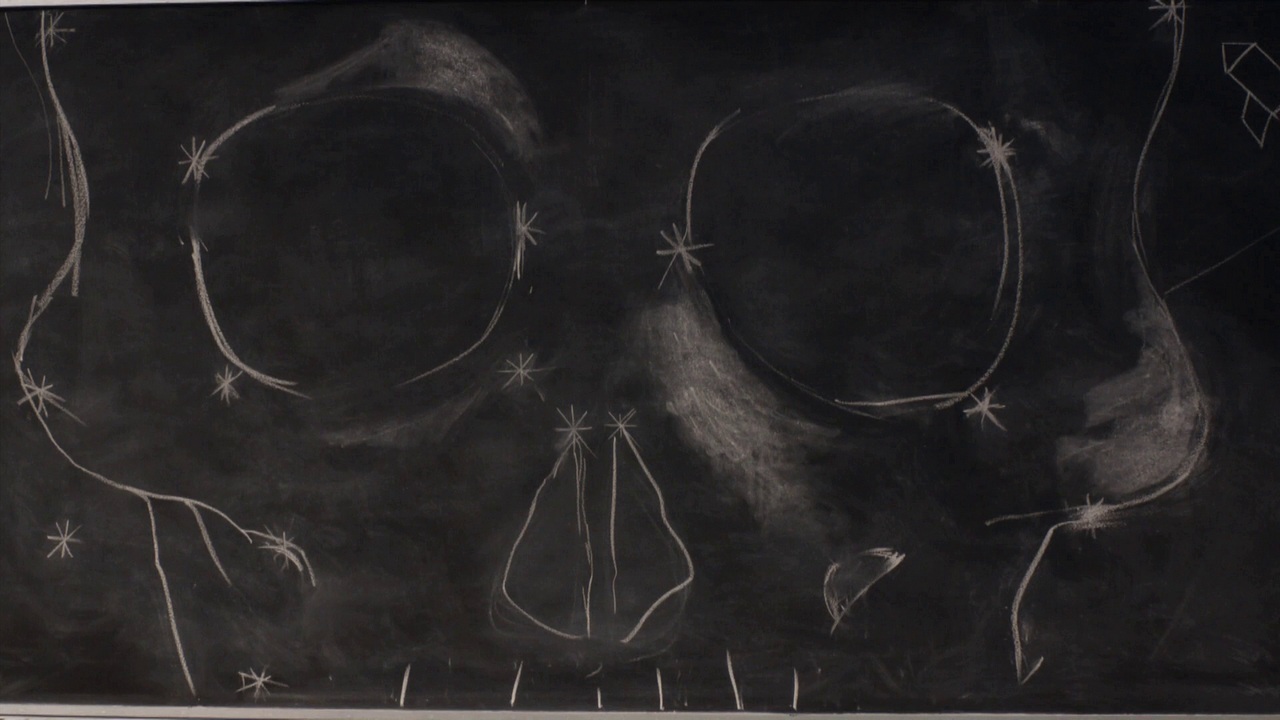 |
| Worship the Death God! The Fendahl created everything! Olag Gan is a sex killer! |
Oxygen's utter gut-hatred for that sort of immoral, amoral penny-pinching evil hits home because let's be honest, if the corporations actually could control air supply, they damn well would. Yet, the same basic premise terrified me back in 1992 when Nightingales (the Shakespearan sitcom I've bored all my friends and relatives about with ages ago) did pretty much the same thing. I'm not saying this is a ripoff, just a coincidence that the biggest nightmare people can think of is becoming expendable to your employers.
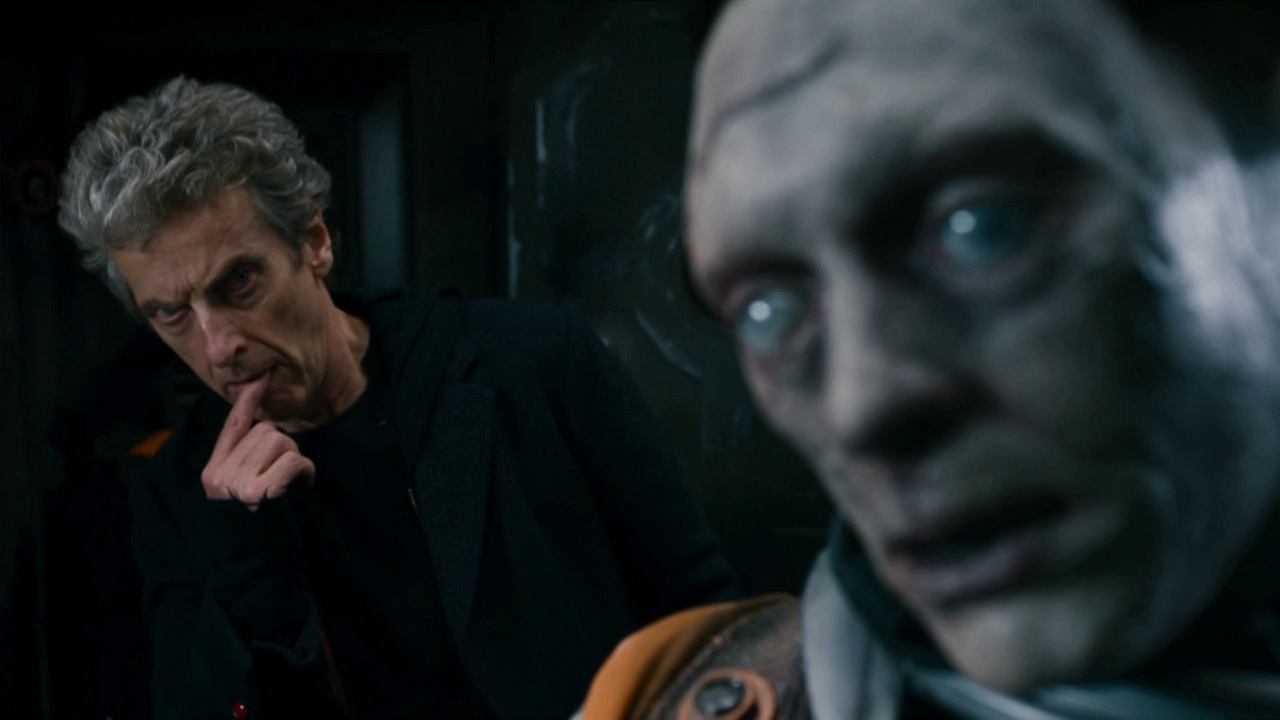 |
| "Is anybody there?" "There's nobody here but us chickens..." |
In summary, if Doctor Who has fallen into a pattern, it's at least being used to say something rather than freak out the characters and audience for 45 minutes a week. And just typical that after I pitch to Big Finish a story about the companion being blinded, the Doctor gets blinded as well.
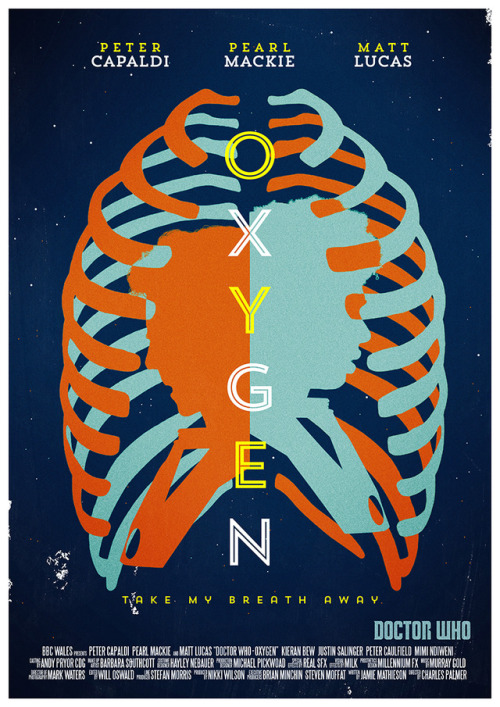 |
| That's more like it. |
As for the rapidly-becoming-unwatchable Whovians, it has now reached the point I feel genuinely sorry for Rove being stuck on a couch with two of the worst people to watch anything with. Bargo from Good Game is now so hyperactive he threatens to topple Iggy Pop on Countdown as "most obviously on drugs during an interview" with a jaw-dropping scene of him having a toddler tantrum over the destruction of the sonic screwdriver before the rest of the guests delicately break it to him that the Doctor has a cup full of the bastards on his desk, which has been shown on screen numerous times before. Or his inability to understand what a spacesuit helmet is, and refers to it as "their big space hats". When he sees a remote controlled Dalek and screams "IT MOVESSSS!!", you're not surprised that Tegan wonders if he's hearing voices from his five-buck Christmas decoration K9.
And while little Dexter (a ten year old Matt Smith cosplayer) immediately proves a better theorist than the incoherent garbage Adam Richard spews out - if Capaldi's Doctor is in a season-long regeneration scene, it's a bit odd his eyes haven't healed, don't you think? And seriously would anyone think "Bill is a fob-watched Susan" is a good way to win an audience? - the show dropped the ball when George Christensen came on to review a show that is 180 degrees opposed to all his politics.
Rove, to his credit, tries to ask why a show preaching tolerance, equality and gay rights is the lifelong favorite of a bloke who wants to bring back hanging, treat all from Islam as terrorists and is physically disgusted at the idea of women marrying other women. Christensen's awkward grunt from his Mr. Creosote-like blobby form (seriously, his Tom Baker scarf is too small for his Jabba the Hutt frame) is that Doctor Who is English and ergo whatever happens in England stays in England. Given that Christensen is without doubt the first person the Doctor would tear a strip off for such incoherent prejudice and hypocrisy, this sort of thing has the potential to make Whovians the next Enough Rope!
Yet, with Bargo vibrating on an ultrasonic frequency in one corner and Adam Richards squealing every negative gay stereotype in the other (enough to make you vote against gay marriage just to piss him off), Rove finds himself unable to get a word in edgeways or clarify what the hell a racist misogynist bigot find so enjoyable about a show that stands for everything he doesn't. It's kind of like finding out the Black Panthers were fans of the Black and White Minstrel Show. What?!?!
But no, Adam wails camply the sort of "you're a politician, you should make things better for me" one-liners that would be considered pathetic by the characters from Housos, and the whole thing ends feeling like a pointless waste of time that's twenty minutes of padding after people say "I like that episode." Once the gag that Tegan finally got the blue-faced alien guy she's been craving all year (apparently not having watched a single trailer of any kind whatsoever) is made, it's just a couple of wise cracks short of a test card.
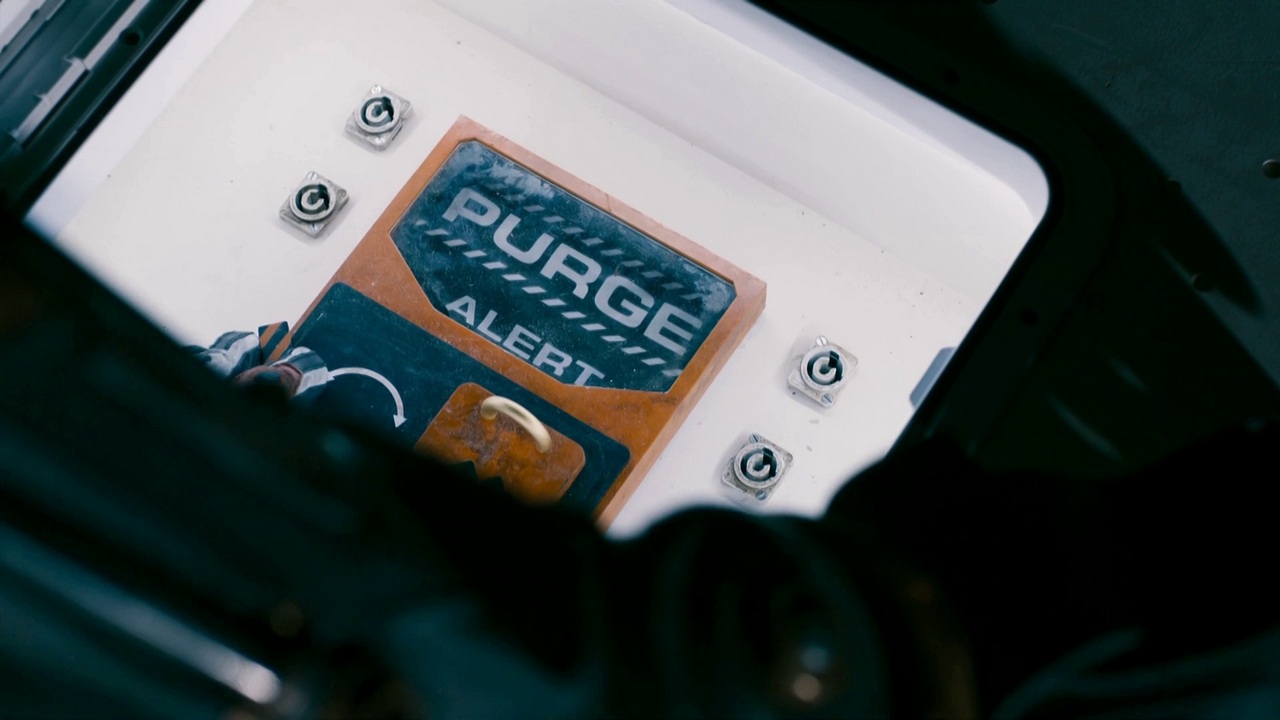 |
| I too felt the distinct urge to purge the cast of Whovians after this... |
And George Costas as the Doctor was strangely endearing as it was clear he had no interest in the show whatsoever and was just doing it as a favor to pad the show out. At least he had the decency to get it over with quick and didn't even bother to research how to pronounce monster names, so at least he doesn't come across as a hypocrite like the "hardcore fans" who don't remember Derek Jacobi played the Master...
No comments:
Post a Comment